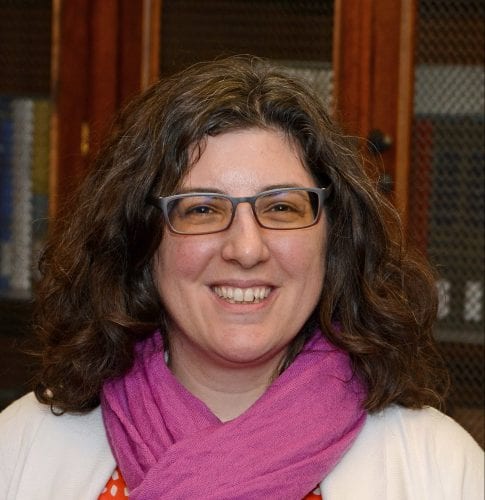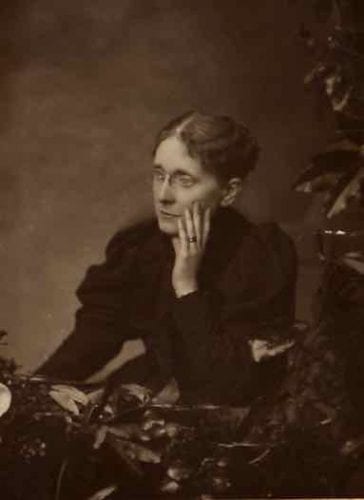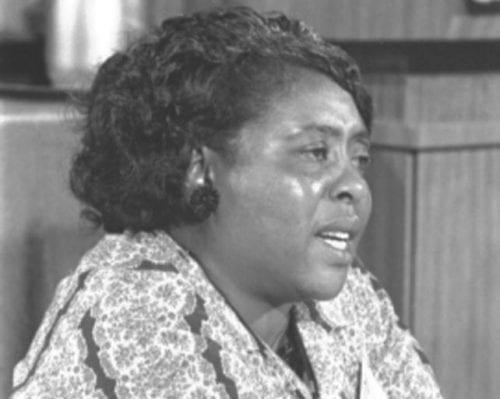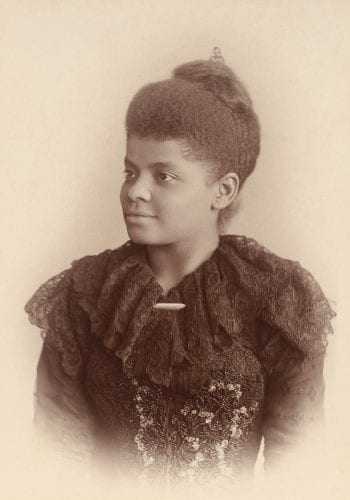Women’s Voices Collection Documents the Visionary Work of Women

Today we feature a conversation with Sarah Morgan Smith. Smith is content editor of several volumes in TAH’s Cored Documents series, including Documents and Debates in American History and Government, Volume 1 (1493 – 1865); Gender and Equality; and Religion in American History and Politics (co-edited with David Tucker and Ellen Tucker). Expanding on her work in the latter volume, Smith has edited Women’s Voices, a richly varied collection of American women’s speeches, letters, and essays on religious sectarian movements and social reforms. Smith earned a Master of Arts in American History and Government at Ashland University and a Ph.D. in Political Science at Rutgers University, where she wrote a dissertation on civic formation among the Puritans in 17th century New England.
Smith tells us that not only among the Puritans, but in all eras and regions of America, women have played an essential role in educating both youth and adults for responsible citizenship.
You’ve now edited two core document collections entirely or primarily featuring the words of women in American history. In addition to Religion in American History and Politics: Women’s Voices (2019), you’ve edited Gender and Equality, which illuminates the political struggle of American women for equal rights. Which volume, in your view, is more important to the study of women in American history?
I’d say the Women’s Voices volume, because it deals with the everyday lived experience of women and their social responsibilities: raising the next generation and passing on the manners, mores and virtues that support civil society. We know voting turn-out is abysmal, so even when women have the vote, it’s not necessarily being utilized. Arguments for legal equality probably have not influenced American history so much as arguments for the dignity of women as persons and for the work they’ve done socially, rather than politically.
In fact, if we want to talk about our history from a perspective other than “the great white man,” we must talk about women’s religious history. Ann Braude, the great woman’s historian, says that in America, women’s history is religious history, because that is where women could be active and find a voice.
We have too few rich primary sources written by those who are not white men. Those who study social history comb through other kinds of sources—land deeds, court records, etc.—that provide data but not the perspectives of those who lived before us. Many women’s history programs rely on secondary sources written by professional historians who’ve collated the data in such documents. At Teaching American History, that’s not our focus. We work with primary documents that give direct access to the thoughts of earlier Americans.
The women we encounter in Womens’ Voices seem to speak from a sense of God-inspired urgency. They have a sense of their equality to men as servants or prophets of God, yet I don’t feel their goal is to further the rights of women. Would you agree?

Yes; it’s not about equality for equality’s sake; it’s about what you do with the equality. Some women have an insight into divine truth they want to share with the world; others want to do God’s work through social reform efforts. Frances Willard travels the country promoting the Temperance Movement, but she finds that in order to speak about temperance, she needs to address other issues. The speech of hers included in the volume is called “The Do-Everything Policy.” To address what she sees as the problem of male drunkenness and its related social ills, she needs to speak about women’s rights within marriage and their legal position as individuals—as well as about urban reforms.
Jane Addams is another interesting case. She and other women at Hull House actually held public office before women had the vote. Addams served on the Chicago school board; before that, she became sanitation commissioner for her ward, after her protests about trash-filled streets became such embarrassment to the mayor that he appointed her to the position. She soon realized she needed to travel around on the wagon with the trash collector to ensure that the work was done. For her, public office was a means to helping others.
Do you see a difference between the rhetoric deployed by female and male religious reformers? Are women less strident?

Often, but not always. Fannie Lou Hamer, for example, was gentle in spirit but very blunt in her calling out of injustice. She forgives the men who beat her, but she uses every scriptural text at her disposal to show that God condemns racist violence and social inequity.
Women like Catherine Beecher, whose circular protesting Andrew Jackson’s Indian removal policy I included in Gender and Equality, thought that women don’t need and shouldn’t have the vote, since they’re more influential if they appear disinterested (see Beecher’s Address on Female Suffrage, also in Gender and Equality). Staying out of the muck of politics will keep their arguments unbiased. This is questionable; that you’re unable to vote doesn’t mean you don’t care who wins! Still, the Beechers argue that disenfranchised women can more easily appeal to men’s better natures, since men won’t perceive them as a threat.
There are cases in the volume of men resisting the voices of women; I think of AME Bishop Richard Allen hesitating to support Jarena Lee’s call to preach. At other times men encourage women to take up roles that are not elsewhere being covered—for example, Joseph Smith calling a meeting to establish The Female Relief Society of Nauvoo.
Until we get to the late 19th century and there are widespread state-driven efforts to take care of things like public sanitation, poor relief, or the needs of immigrant children, women are the social security net in American society. You never see male writers discouraging women from taking on relief efforts. They know that a man will not tell his buddies that his kids are hungry because the crop failed; male pride will get in the way. But women will talk to each other. Men say to women: you know and you see what the needs are.
Education, also, began in the home. Mothers gave children their first and sometimes their only lessons in reading and writing, especially in Puritan New England, where all believers were expected to read scripture and the catechism. The role women took in educating the boys who would grow up to lead their communities bolstered their role in educating others involved in politics.
I include an excerpt from John Quincey Adams in the Gender and Equality volume, because he defended women’s right to speak on public questions through petitions. When a Congressman objected to hearing women’s anti-slavery petitions, on the grounds that it was improper and “discreditable to the nation” for women to meddle in the public sphere, Adams responded that this was ridiculous. Everyone who has had a mother remembers being taught moral precepts by her. Anyone who reads the Bible knows that women like Jael and Esther have acted to save their nation.

In some cases, women are better positioned to speak out for justice. Ida B. Wells (whose article “Lynch Law in America” I excerpt in Gender and Equality (Document 23) could protest the lynching of those falsely accused of attacking women with an authority that a male writing about lynching would not have had. As a woman, she will take seriously accusations of rape, whereas a man writing about this subject might be seen as blaming the victim.
How does your interest in women’s religious history relate to your interest in Puritan America?
I love the Puritans and get aggravated when people repeat false stereotypes about them. Often, people impute to Puritans an oppressive attitude toward women. I blame Nathaniel Hawthorne and the ubiquitous presence of The Scarlet Letter on high school readings lists for this misperception (not to mention Arthur Miller’s play The Crucible, about the Salem Witch Trials). In truth, the Puritans are deeply respectful of women. They advocate companionate marriage—rather than marrying for money or convenience, they advise people to partner with those of compatible temperament and intelligence. They also grant women a lot of authority as co-sovereigns of the household. It’s true that, in the case of a disagreement between spouses, they regard the father as the ultimate authority in the family. But Puritan advice manuals and sermons counsel both spouses to work out their differences. They don’t tell women, “Do what he says;” they tell men, “Listen to your wife—she has a lot of wisdom.”


